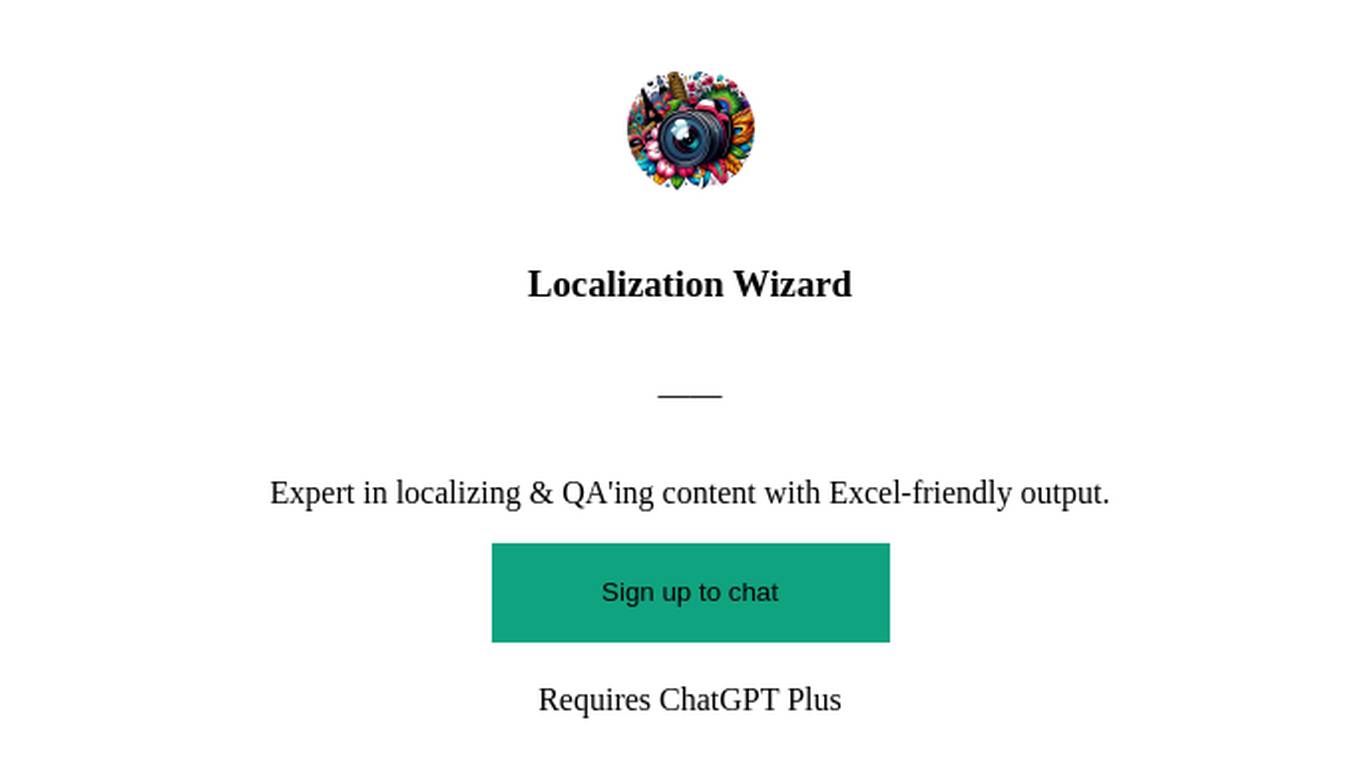Best AI tools for< Localizing Audio >
5 - AI tool Sites

AudioShake
AudioShake is a cloud-based audio processing platform that uses artificial intelligence (AI) to separate audio into its component parts, such as vocals, music, and effects. This technology can be used for a variety of applications, including mixing and mastering, localization and captioning, interactive audio, and sync licensing.
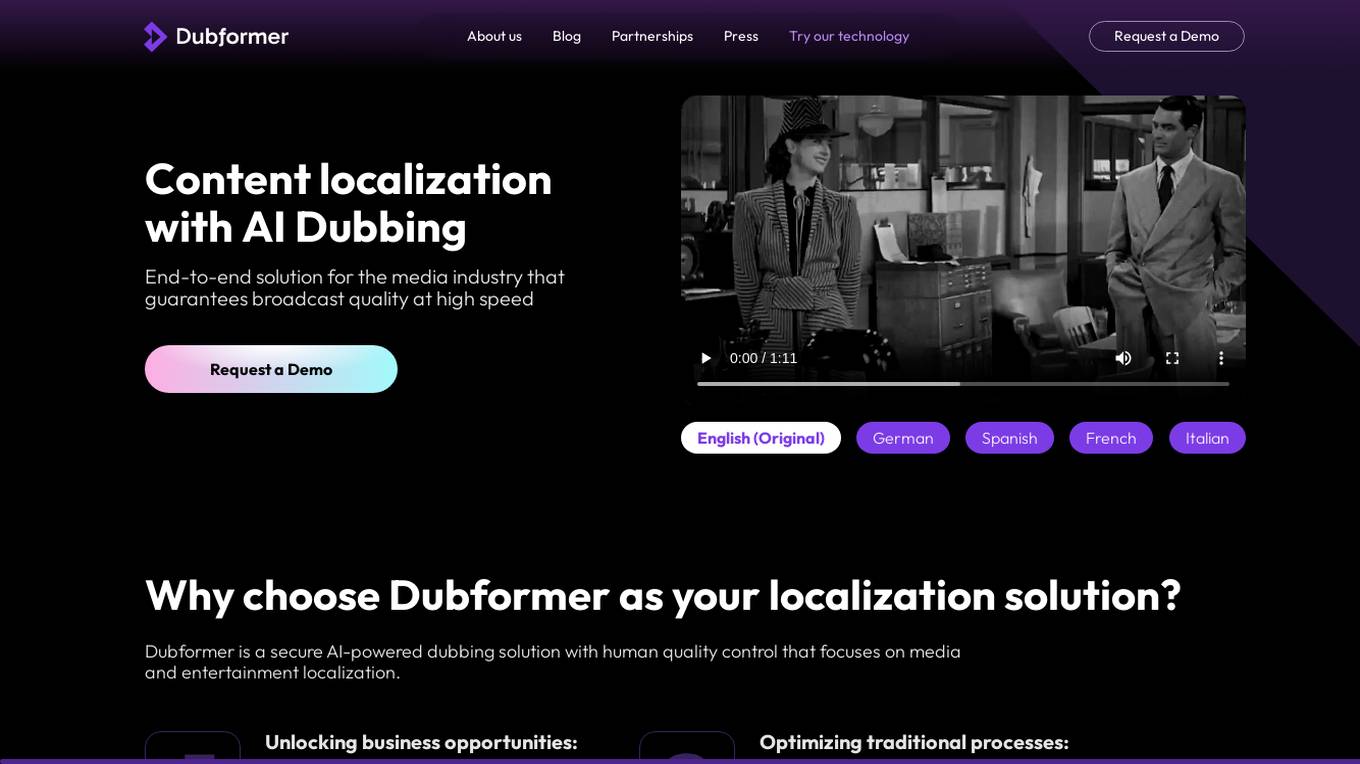
Dubformer
Dubformer is an AI-powered dubbing and video localization provider that offers a secure and end-to-end solution for the media industry. With a focus on quality and speed, Dubformer's technology enables the creation of realistic and natural-sounding voice-overs in multiple languages, making video content more accessible and engaging for diverse audiences. The platform combines AI-driven processes with human quality control to ensure broadcast-quality results. Dubformer's services include AI dubbing, accurate and culturally sensitive translations, AI mixing for immersive soundscapes, and AI-powered subtitles and closed captions.
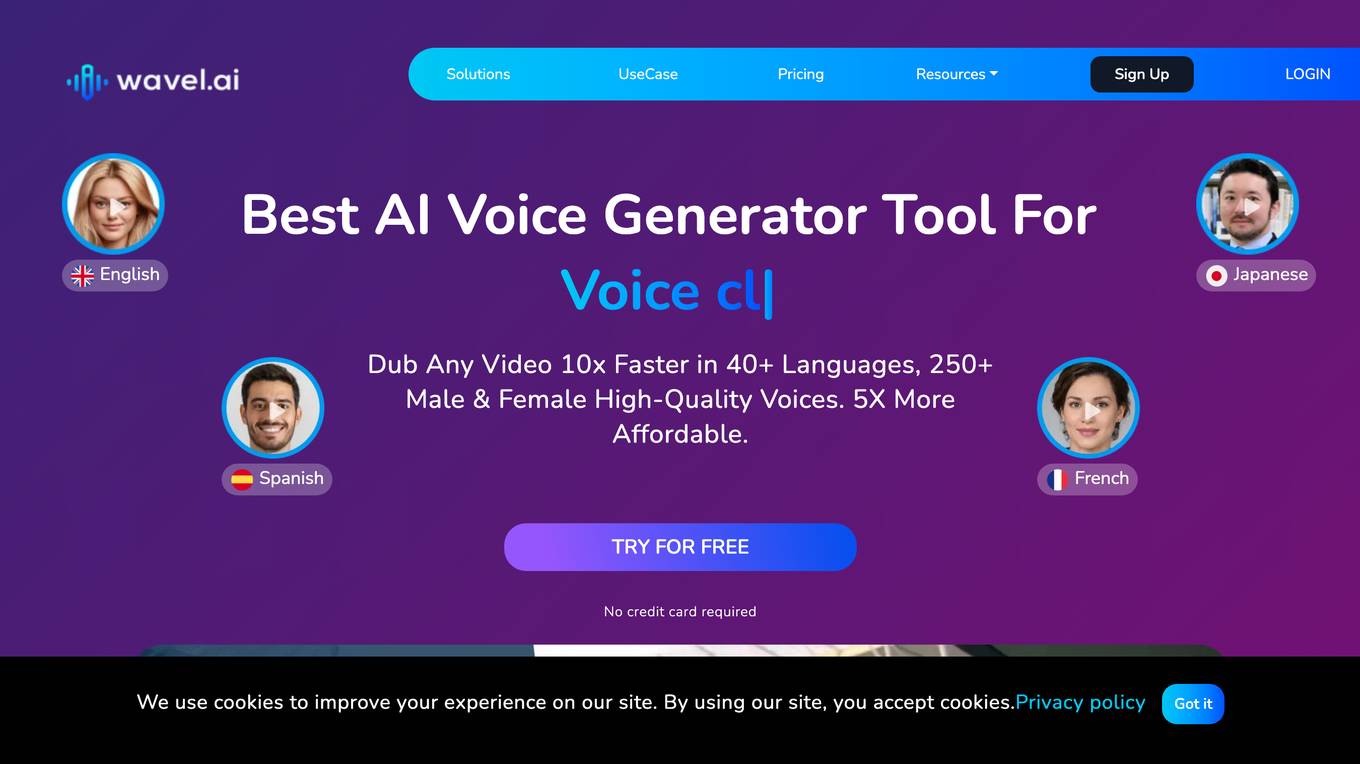
HumanVerify
The website is a human verification tool that requires users to solve a puzzle to confirm they are not a bot. It helps protect user accounts and prevent spam by verifying human presence through a CAPTCHA puzzle. Users need to disable Google Translate and enable JavaScript to complete the security check.
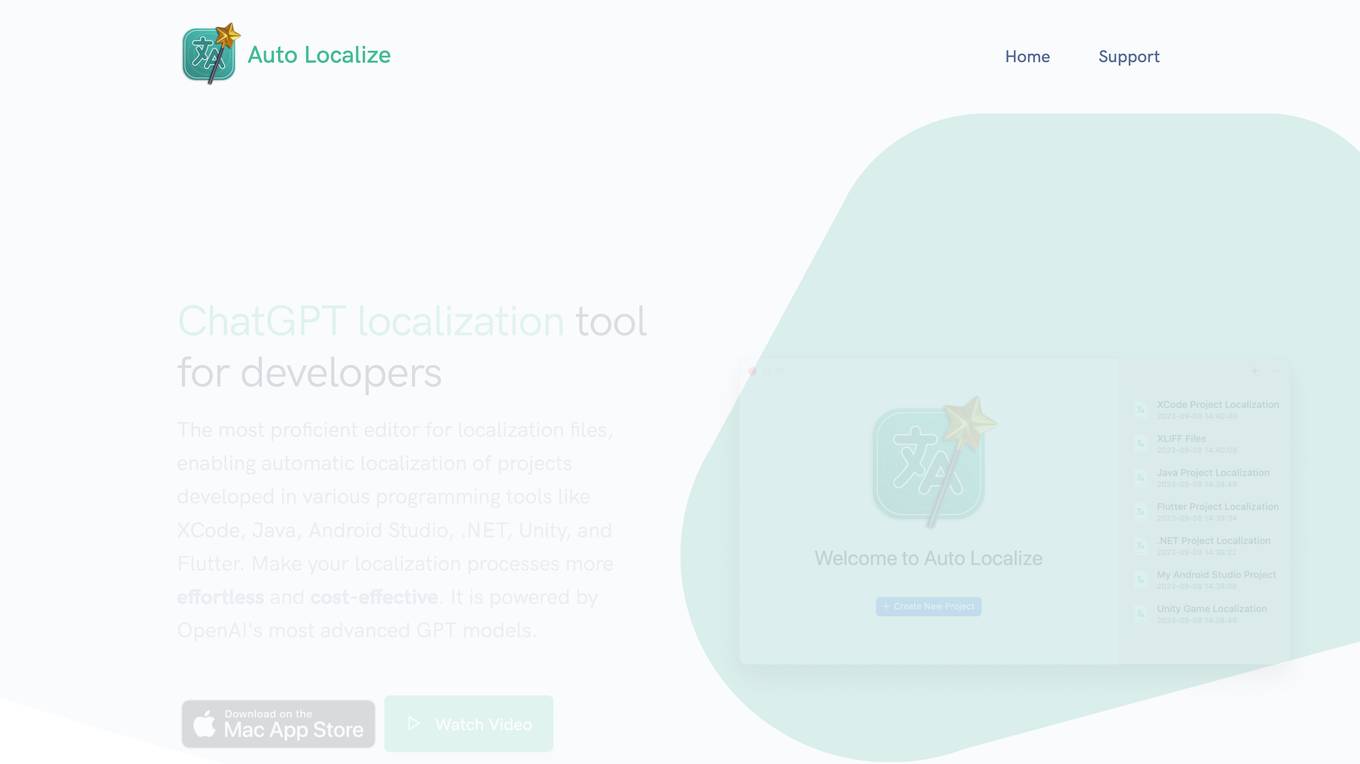
Auto Localize
The website offers an AI Localization tool for Xcode and App Store Connect, allowing users to simplify their workflow by easily localizing their projects. It provides features such as instant localization for Xcode projects, seamless App Store Connect integration, flexible AI-powered localization, and broad compatibility beyond Xcode. Users can save hours on Xcode project and App Store Connect localization with this ultimate localization tool.
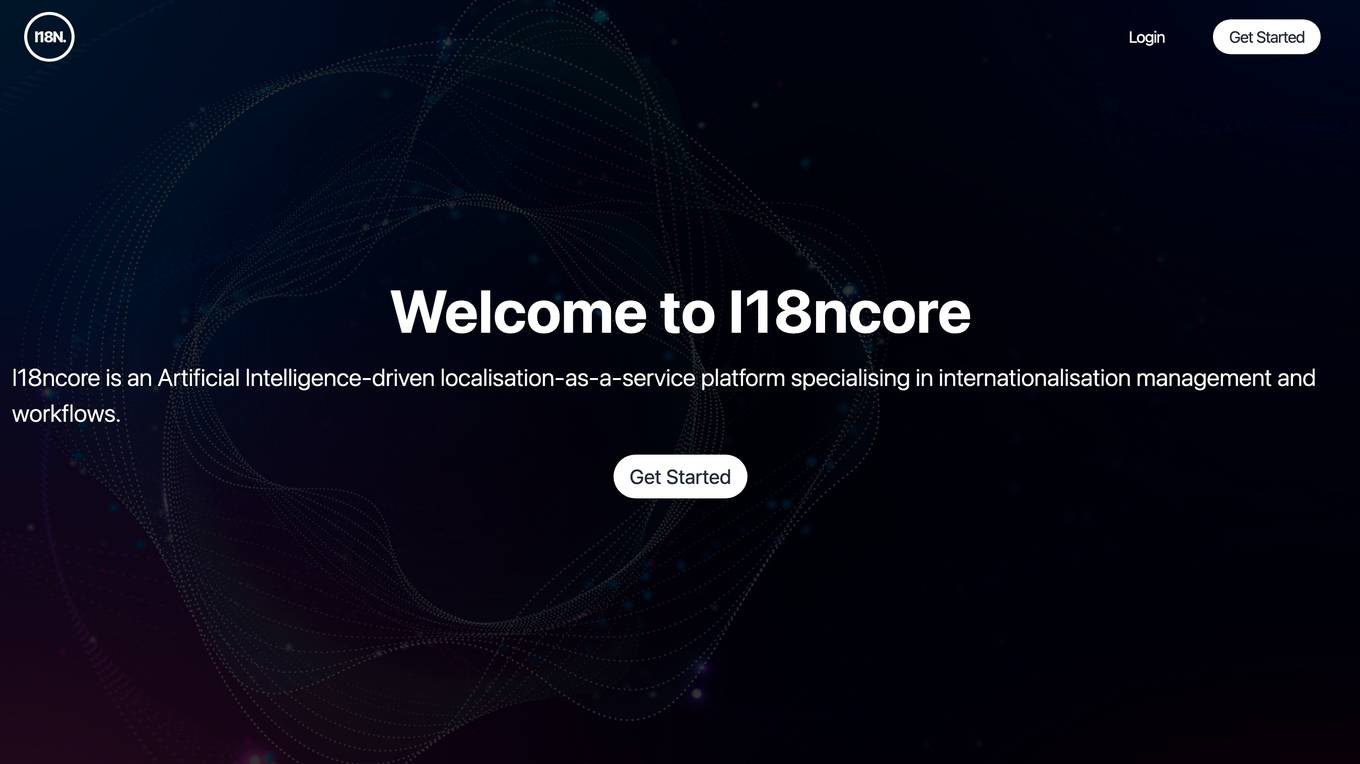
I18ncore
I18ncore is an Artificial Intelligence-driven localisation-as-a-service platform that specializes in internationalization management and workflows. It offers a simple 3-step process for localizing projects, including signing up, syncing with GitHub, and starting the translation process. Users can access features like unlimited keys, projects, email support, and AI-assisted translations through different pricing plans. I18ncore aims to streamline the localization process and provide efficient solutions for managing multilingual projects.
